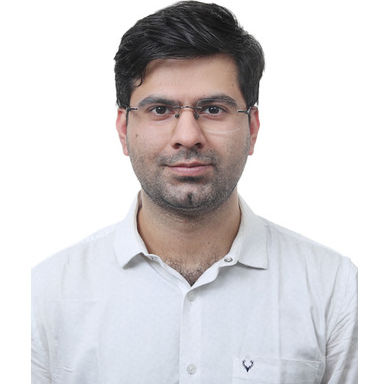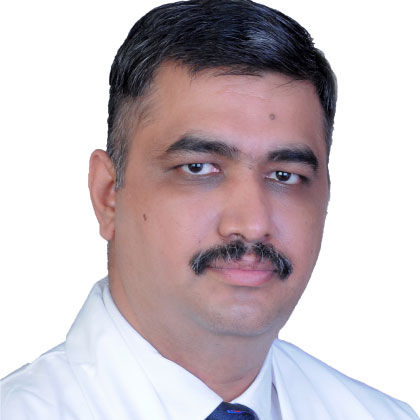Delirium: Symptoms, Causes, and Treatment
Discover what delirium is, including its symptoms, causes, and treatment options. Learn how to recognize this serious medical condition and the steps needed for timely diagnosis and effective management.


Introduction
Delirium is a sudden and serious change in mental function that affects attention, awareness, and thinking. It can be frightening for both the person experiencing it and their loved ones. Unlike dementia, which develops slowly, delirium comes on quickly, often within hours or days, and can fluctuate in severity.
If you or someone you know is showing signs of delirium, it’s important to seek medical help right away. Understanding the symptoms, causes, and treatment options can help manage this condition effectively.
What Are the Symptoms of Delirium?
Delirium can present in different ways, but common symptoms include:
- Confusion and disorientation – Not recognizing familiar people or places.
- Difficulty focusing – Trouble paying attention or following conversations.
- Memory problems – Forgetting recent events or mixing up details.
- Changes in alertness – Being overly drowsy or unusually agitated.
- Mood swings – Sudden shifts between anxiety, anger, or depression.
- Hallucinations or delusions – Seeing or believing things that aren’t real.
- Slurred speech or trouble speaking – Difficulty forming coherent sentences.
Symptoms may worsen at night (a condition called "sundowning") and can vary throughout the day.
Consult a Neurologist for the best advice
What Causes Delirium?
Delirium is usually triggered by an underlying medical condition, medication side effects, or environmental factors. Common causes include:
1. Medical Conditions
- Infections (UTIs, pneumonia, sepsis)
- Chronic illnesses (kidney or liver disease, heart failure)
- Metabolic imbalances (low sodium, high calcium, dehydration)
- Brain disorders (stroke, seizures, head injury)
2. Medications
- Sedatives, painkillers, or sleeping pills
- Antidepressants or antipsychotics
- Certain antibiotics or steroids
3. Hospitalization or Surgery
- Being in an unfamiliar environment (ICU delirium is common)
- Post-surgery complications (anesthesia effects, pain medications)
4. Substance Withdrawal
- Alcohol or drug withdrawal can trigger delirium tremens (a severe form).
5. Age & Vulnerability
- Older adults (especially those with dementia) are at higher risk.
- People with multiple health conditions or weakened immune systems.
How Is Delirium Diagnosed?
Doctors diagnose delirium by:
- Reviewing medical history (recent illnesses, medications, substance use).
- Conducting a mental status exam (checking attention, memory, awareness).
- Running tests (blood tests, urine tests, brain scans if needed).
Early detection is crucial because untreated delirium can lead to complications like prolonged hospital stays or worsening cognitive decline.
Get Your Health Assessed
How Is Delirium Treated?
Treatment focuses on addressing the underlying cause and managing symptoms:
1. Medical Treatment
- Treating infections (antibiotics for UTIs or pneumonia).
- Correcting imbalances (fluids for dehydration, electrolytes for imbalances).
- Adjusting medications (reducing or stopping drugs that worsen confusion).
2. Supportive Care
- Creating a calm environment (quiet room, familiar faces, natural light).
- Encouraging sleep (reducing nighttime disruptions).
- Reorientation techniques (clocks, calendars, reassuring conversations).
3. Preventing Complications
- Mobility assistance (preventing falls or bedsores).
- Proper nutrition & hydration (balanced diet, enough fluids).
- Avoiding restraints (which can increase agitation).
Can Delirium Be Prevented?
While not all cases can be prevented, these steps can reduce the risk:
- Stay hydrated and maintain a healthy diet.
- Review medications with a doctor to avoid side effects.
- Manage chronic conditions (diabetes, heart disease).
- Encourage mental stimulation (reading, puzzles, social interaction).
- Ensure proper sleep (consistent bedtime routine).
If you’re caring for an elderly loved one, watch for sudden changes in behaviour and seek medical advice promptly.
When to See a Doctor
Seek immediate medical help if someone:
- Suddenly becomes confused or disoriented.
- Has trouble staying awake or is overly agitated.
- Shows signs of hallucinations or severe memory loss.
Delirium is a medical emergency, and early treatment improves recovery chances.
Conclusion
Delirium is a serious and often sudden condition that requires prompt medical attention. Recognizing the symptoms early, understanding the underlying causes, and seeking timely treatment can significantly improve outcomes and support a faster recovery.
Consult a Neurologist for the best advice
Consult a Neurologist for the best advice

Dr. Dipti Ranjan Tripathy
Neurologist
15 Years • MBBS, MD (GENERAL MEDICINE ),DM (NEUROLOGY)
Rourkela
Apollo Hospitals, Rourkela, Rourkela

Dr. Aditendraditya Singh Bhati
Neurosurgeon
18 Years • MBBS(2004), DNB Neurosurgery(2014); MNAMS; Fellow Neuroendoscopy
Delhi
Apollo Hospitals Indraprastha, Delhi
(100+ Patients)

Dr. Ganeshgouda Majigoudra
Neurologist
10 Years • MBBS, MD ( GENERAL MEDICINE) DM (NEUROLOGY)
Bengaluru
Apollo Clinic, JP nagar, Bengaluru

Dr. Sarthak Mehta
Neurologist
6 Years • MBBS , MS Mch ( Neuro )
Bengaluru
Apollo Clinic, JP nagar, Bengaluru

Dr. Amit Kapoor
Neurosurgeon
18 Years • D.N.B NeuroSurg.
Delhi
Apollo Hospitals Indraprastha, Delhi
Consult a Neurologist for the best advice

Dr. Dipti Ranjan Tripathy
Neurologist
15 Years • MBBS, MD (GENERAL MEDICINE ),DM (NEUROLOGY)
Rourkela
Apollo Hospitals, Rourkela, Rourkela

Dr. Aditendraditya Singh Bhati
Neurosurgeon
18 Years • MBBS(2004), DNB Neurosurgery(2014); MNAMS; Fellow Neuroendoscopy
Delhi
Apollo Hospitals Indraprastha, Delhi
(100+ Patients)

Dr. Ganeshgouda Majigoudra
Neurologist
10 Years • MBBS, MD ( GENERAL MEDICINE) DM (NEUROLOGY)
Bengaluru
Apollo Clinic, JP nagar, Bengaluru

Dr. Sarthak Mehta
Neurologist
6 Years • MBBS , MS Mch ( Neuro )
Bengaluru
Apollo Clinic, JP nagar, Bengaluru

Dr. Amit Kapoor
Neurosurgeon
18 Years • D.N.B NeuroSurg.
Delhi
Apollo Hospitals Indraprastha, Delhi





